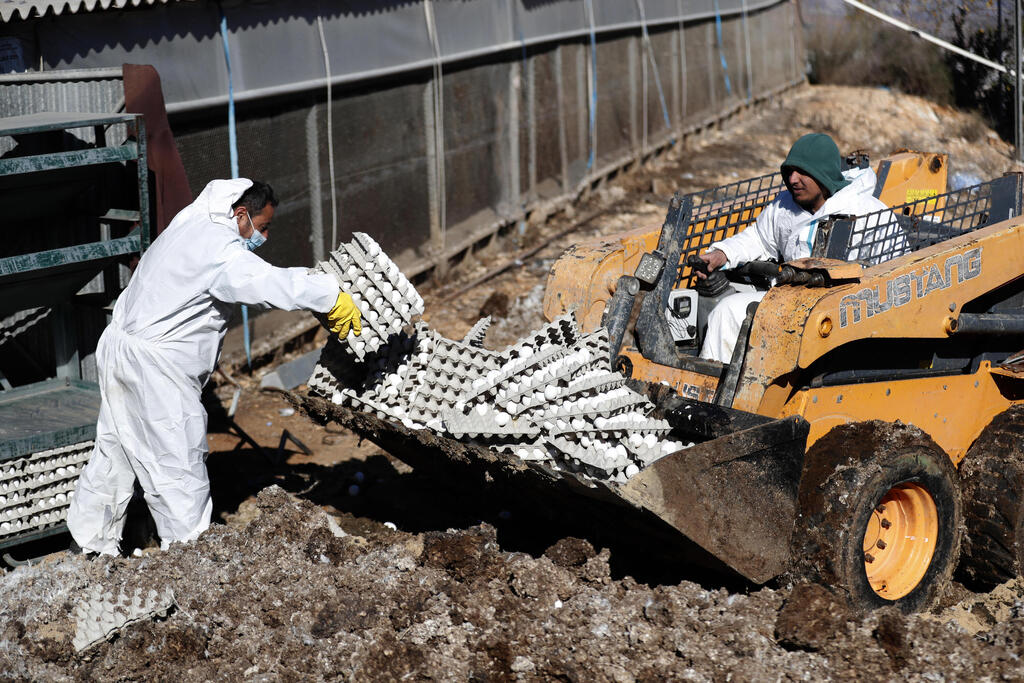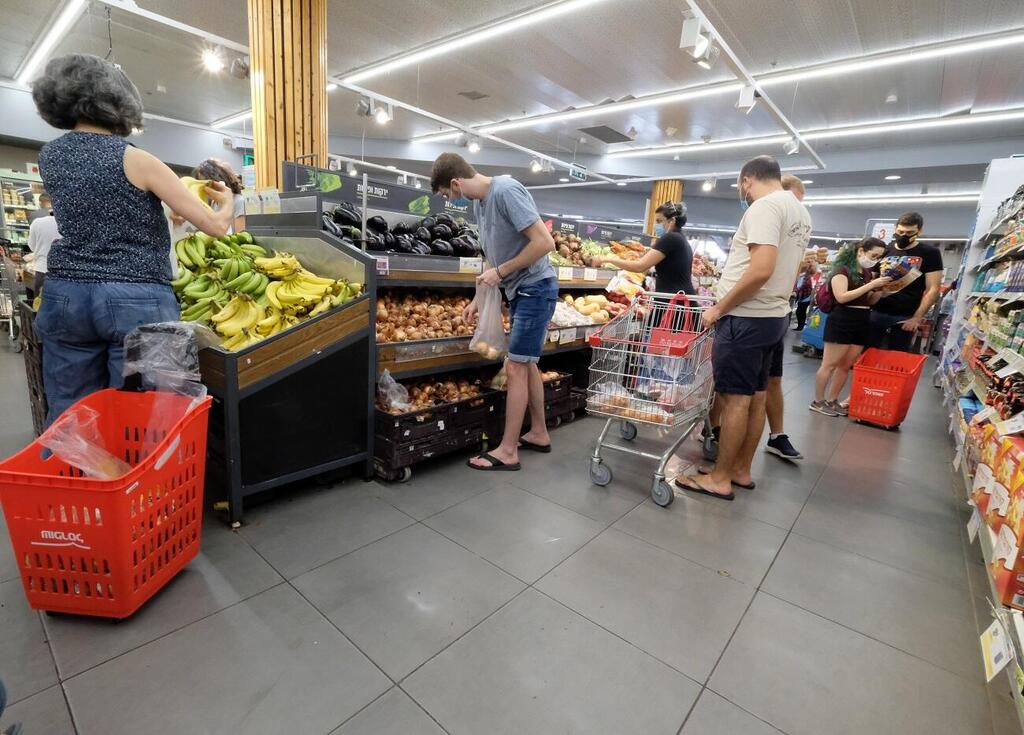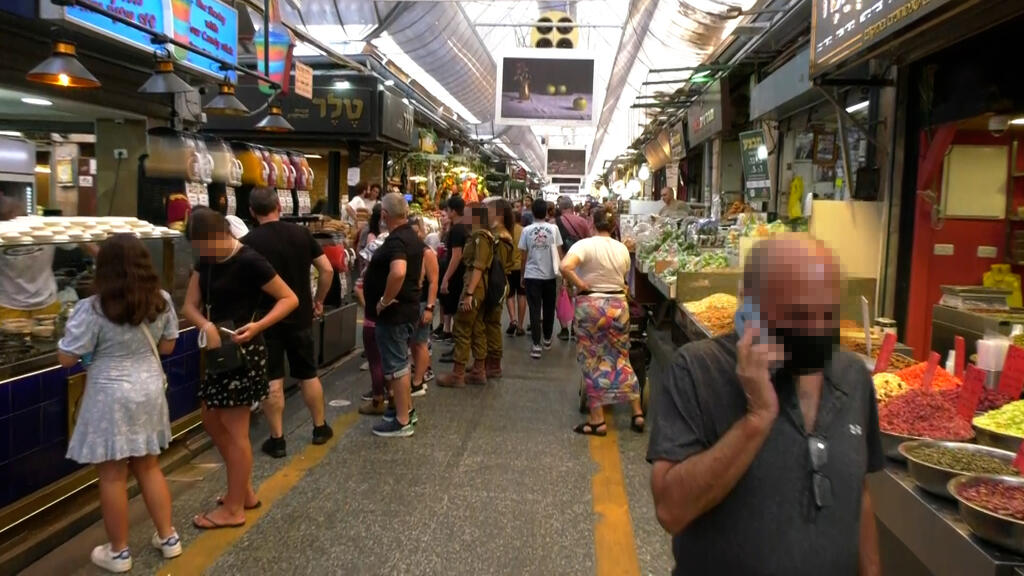The government will take action to help with the inflating cost of living in Israel, Prime Minister Naftali Bennett promised Sunday during a meeting of his Cabinet on Sunday.
Bennett said that his government will present to the public a series of steps to tackle the issue in the coming days.
4 View gallery


Prime Minister Naftali Bennett, center, during a government meeting on soaring cost of living in Israel, February 6, 2022
(Photo: GPO)
“I hope that there will be good news soon, especially vis-à-vis food prices,” he said. “These are things that will have an immediate effect. Several braking measures have already been enacted regarding the marketing chains and importers.”
Such measures include the reduction or removal of import duties on different kinds of foodstuffs.
The price of vegetables in Israel has gone up, in part, due to the current harsh winter weather the country is experiencing hurting crop yields, prompting the government last week to put in place temporary exemptions for the importation of tomatoes and cucumbers and that will be granted on condition the importers ensure the produce is marketed at a low price set by the government.
Similar moves were made for eggs and poultry to help offset price increases incurred from a recent avian flu outbreak, which required authorities to destroy countless chickens and turkeys around the country. Similar exemptions were given to the importation of certain meats and the import duties on butter were permanently abolished.
4 View gallery


Sanitaion workers destory eggs infected with avian flue in Mosahv Margaliot in northern Israel, January 3, 2022
(Photo: EPA)
Soon after the formation of Israel’s current coalition government, it promised to deal with the high food prices in Israel. Finance Minister Avigdor Liberman said that he would cut import duties on agricultural produce, but this was met with protests from Israeli farmers who said that such moves never result in lower prices to the consumer.
Israeli farmers maintain that their margins of profit on the produce that they harvest are minimal and blamed distributors and merchants for the high consumer prices
However, it's not only fresh produce price that had been facing upward pressure, owing to the high inflation worldwide brought about by supply chain disruptions caused by the coronavirus pandemic.
Israel has experienced a lower rate of inflation (about 2.9% since January 1, 2021) than the U.S. and many European countries. That being the case, Israelis are used to news reports on a daily basis that show them how basic products, from toiletries to household cleaners, to over-the-counter medications, are all much more expensive in Israel than in Europe.
The prime minister acknowledged some of this in his statement before the cabinet. “The global rise in prices is a more moderate blow to Israel relative to other countries but we feel it all too well because it is on top of very high prices from the outset,” he said, acknowledging that Israelis, in general, have already suffered from higher prices than the rest of the world he added, “In recent years, the basic cost in Israel has gone up and buying power has gone down, relatively speaking, in the past 10-15 years. Therefore, we need to take a holistic approach on this matter.”
The premier, however, did not explain what he meant by a “holistic approach.”
Bennett did say that he is pleased to see that the public understands the “importance of prudent and critical consumerism even as we in the government are opening impediments and increasing competition.” But he did not explain how he knows this to be the case.
“In the end, whatever lowers prices and facilitates service is always the same thing – competition, competition, competition,” he declared. “No force of nature is stronger than this. I remember as the CEO of a company when I had a monopoly for a certain time, prices were naturally higher, and as soon as competition was opened up, the prices came down.”
Bennett then stated that beyond short-term actions, the solution to tackling high prices in Israel is to locate fossilized industries and stimulate competition in them. “We need every minister here. We must get rid of the red tape and open the market to competition.”
He told his cabinet not to be afraid of making strong moves to curb inflation and to be daring about it. Saying that Israelis should need to pay so much more for the same items that Europeans do, Naftali Bennett declared, “There is no justification for the 150% gap, for example, in the price of toothpaste.”
But as explained above, lowering import duties does not guarantee lower prices. Many retailers and distributors in Israel have very high markups on the products that they sell. And they, in turn, say that this is necessary because they need to pay very high rents in both shopping malls and downtown areas in the cities, along with higher property taxes per square foot than in other countries. And there are also the expenses involved in distributing the goods across the country, as well as business taxes.
This is why the stores in places like Jerusalem’s Mahane Yehuda outdoor market – the Shuk – can offer lower prices on goods like disposables, vegetables and candy than a supermarket located elsewhere in the city. For example, certain boxes of cookies or chocolates can be had there at a rate of 3 or 4 items for NIS 10, whereas a supermarket might charge NIS 10 for just one of these items.
Even though Mahane Yehuda is in central Jerusalem, the merchants there have much lower overhead for their stands than do any of the stores located just a few hundred yards away on Ben-Yehuda St. in Downton Jerusalem.
Bennett concluded his remarks by saying that people should look at this situation as an opportunity. “There is an opportunity here to be brave, to deal with long-term structural flaws that have led to a decade of price increases,” he said. “This government has an extraordinary opportunity to lessen the influence of lobbyists and interested parties and act for the public good, for the good of all citizens of Israel. With G-d’s help, this is what we will do.”



